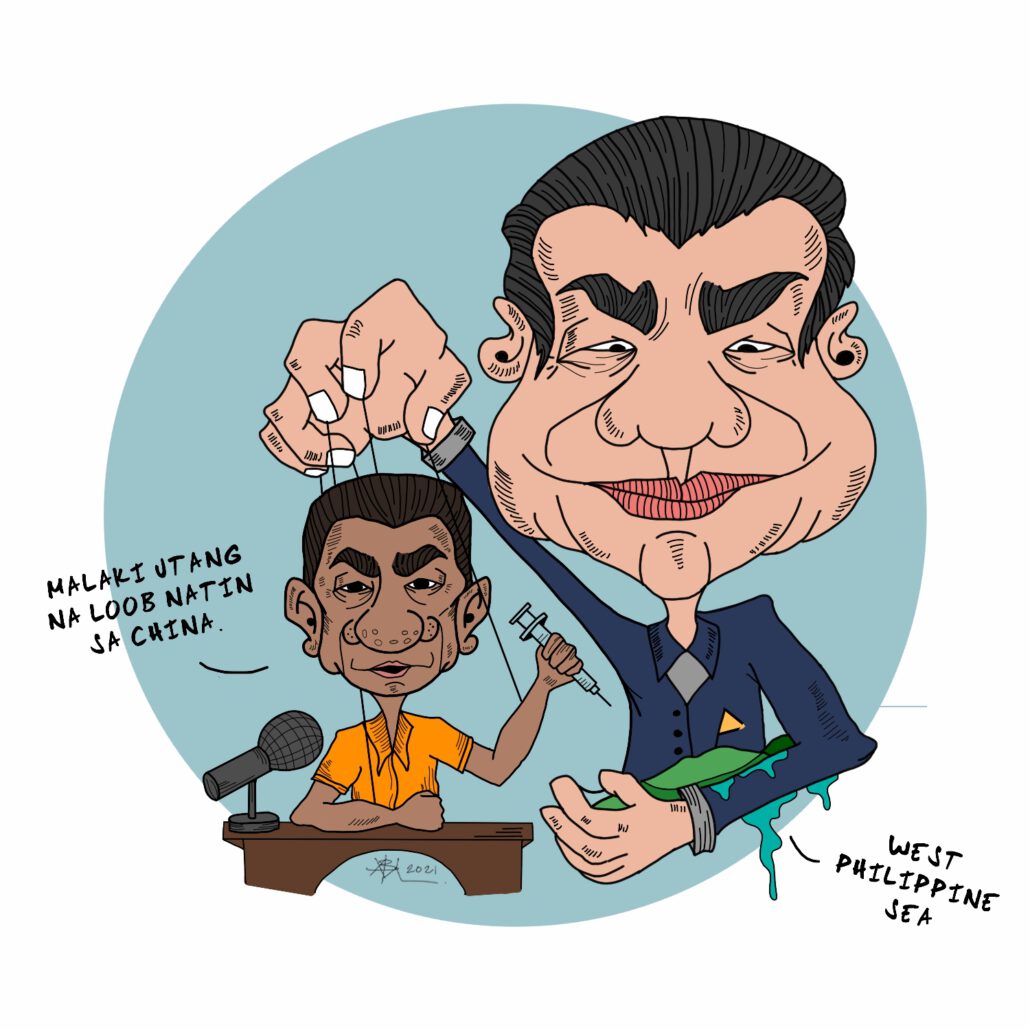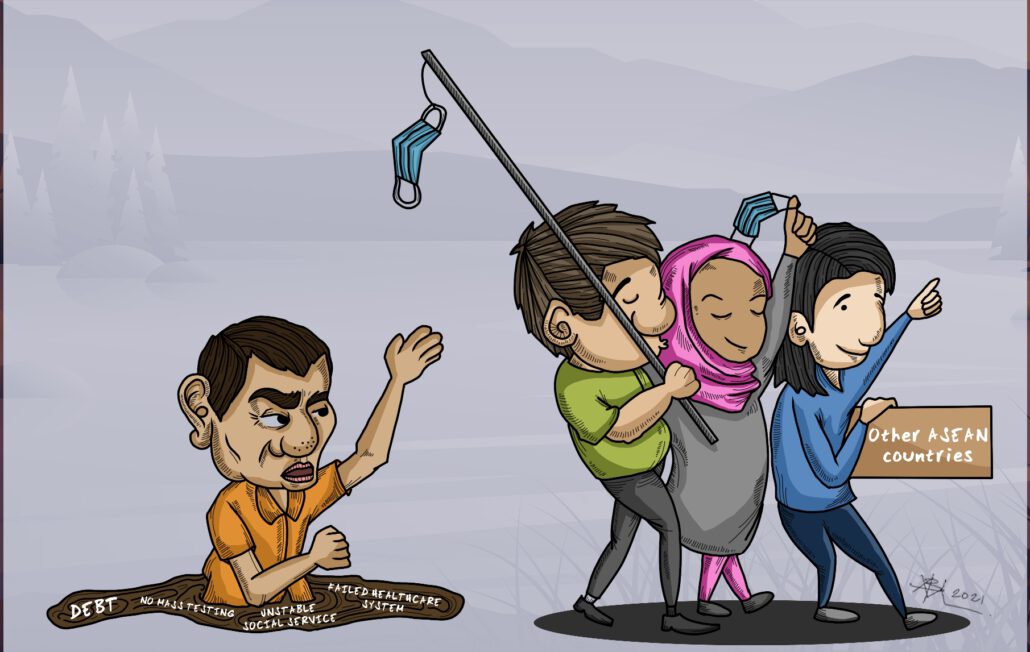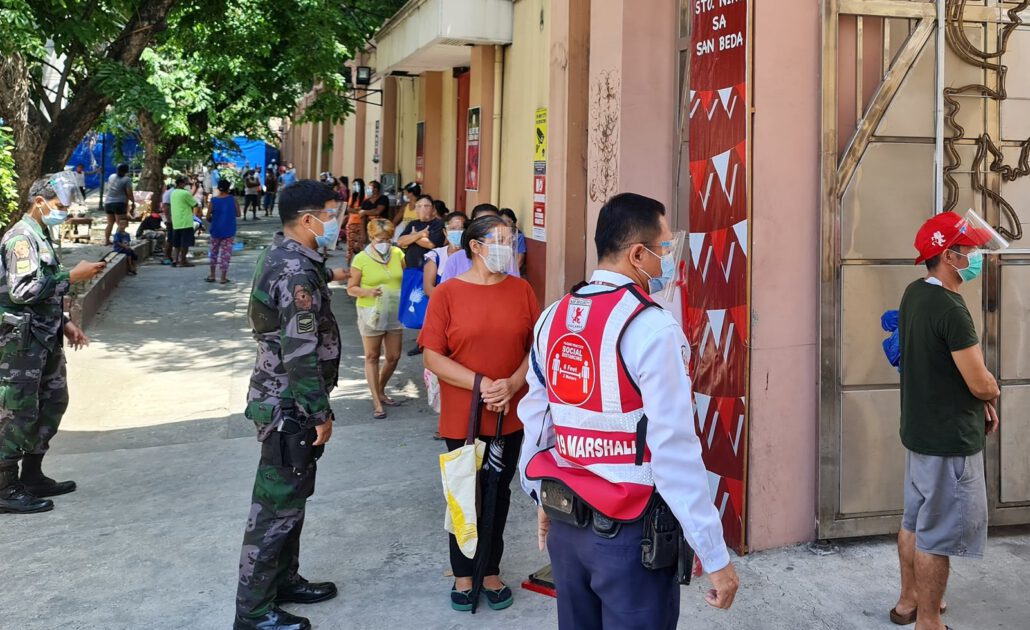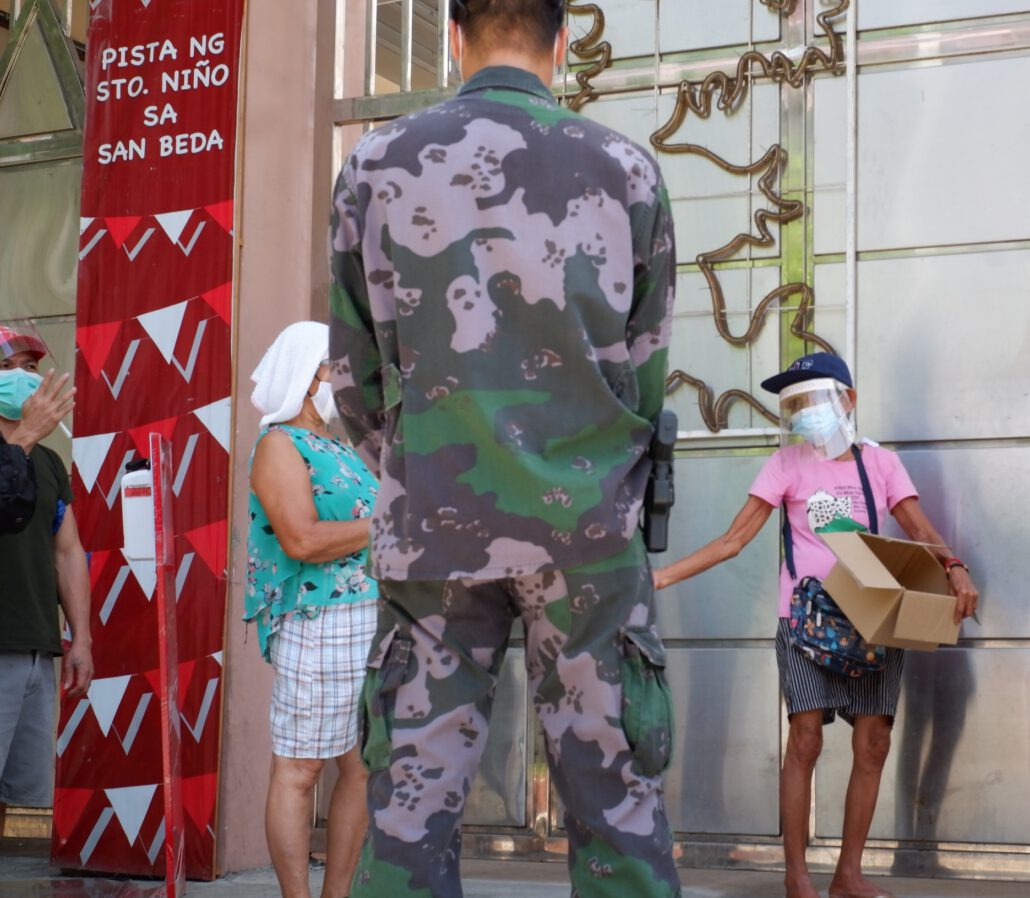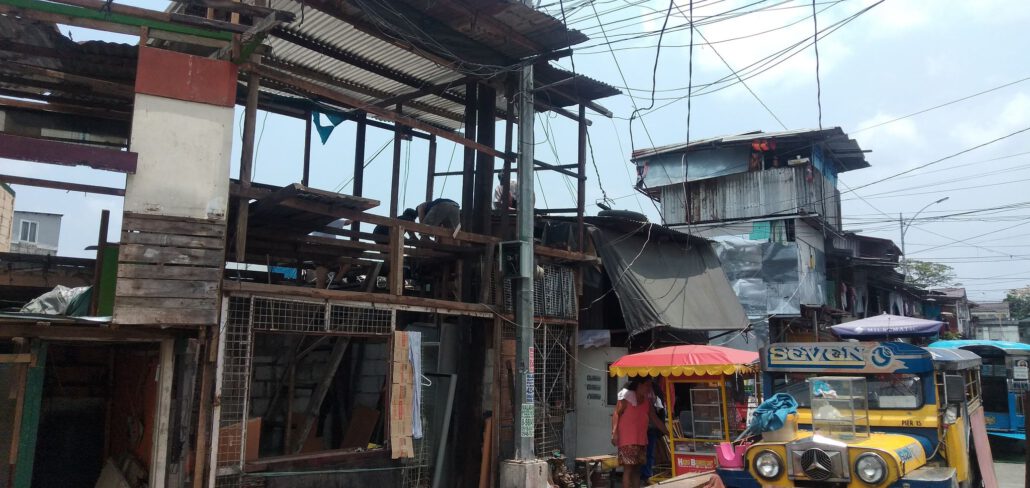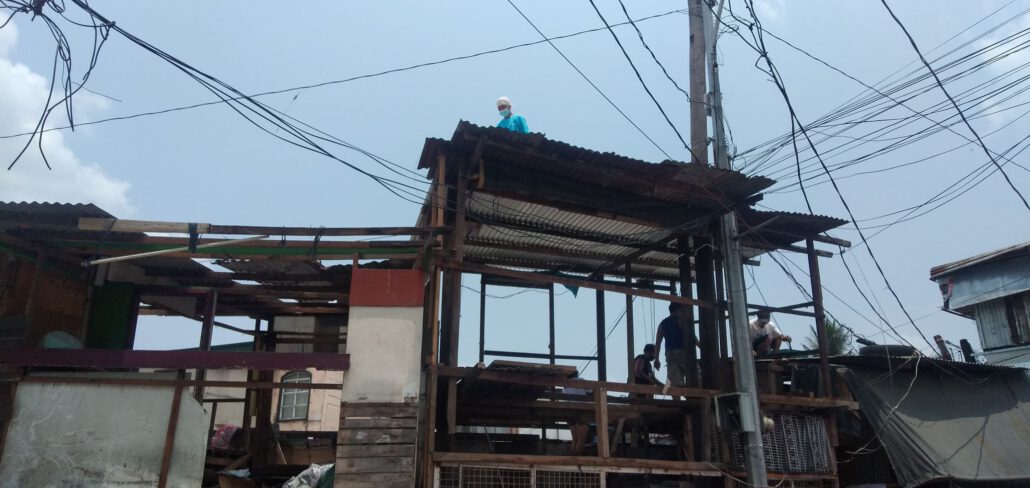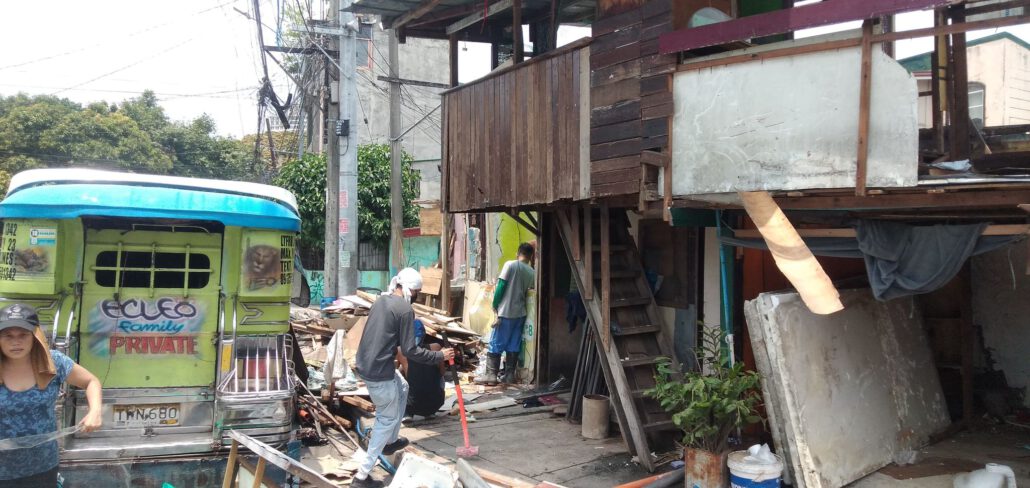by Xandra Liza C. Bisenio and Rosario Guzman
President Duterte recently signed Executive Order (EO) 130 which lifts a 9-year ban on new mining agreements. The economic managers say that Philippine mineral resources have been vastly untapped and could bring significant benefits to the economy. The Department of Environment and Natural Resources (DENR) expects to generate some Php21 billion from two phases of 100 new mining projects. The mining industry can also provide raw materials for the Build, Build, Build program and employment opportunities for the Balik Probinsya, Bagong Pag-asa program, the EO justifies.
EO 130 lifts the moratorium on new mineral agreements, which was set by the Aquino administration’s EO 79, then pending a new revenue law. Save for this provision, EO 79 actually continued and enhanced the destructive features of the Philippine Mining Act of 1995 – opening more mining areas and reservations, including marginal lands, and clipping the powers of local government units (LGUs), say to impose mining bans and declare mining-free zones. EO 130 seeks to intensify these, especially by removing the moratorium – the perceived barrier to full-blast mining – leaving a thicker trail of damage on the environment and communities and with little benefit to the national economy.
Asking for coins
But the Duterte administration has exaggerated how mining investments can help the economy recover amid COVID-19. Like its predecessors, it has mainly focused on mining’s contribution to export earnings, revenues and jobs creation, instead of counting on mineral development for the country’s own industrialization. The Duterte administration uses the same shallow metrics to justify renewing and expanding foreign interests in mining.
But even in these terms, mining has delivered paltry gains. From 2001 to 2020 (available data is for January to September only), total exports of minerals and mineral products grew almost seven-fold from US$537 million to US$3.7 billion, but this contributed only 1.7% in 2001 and 8.3% in 2020 to total Philippine exports.
Ironically, while the country has practically given up its chance to build industries from its own minerals, the exports sector remains dominated by semi-processed electronics and electrical equipment.
Taxes, fees and royalties from mining, despite Duterte’s tax law (TRAIN) having doubled the rate of excise on minerals and quarry resources from 2% to 4%, have remained miniscule – only 0.5% of total excise taxes and 0.07% of total taxes in 2020.
The sector’s contribution to total employment in 2001 to 2020 was also negligible at an annual average share of 0.49 percent.
Foreign direct investment (FDI) in mining from 2002 to 2020 amounted to US$754.8 million, an annual average of US$39.7 million. This translates to an insignificant annual average contribution of 0.95% to total FDI.
At the bottom line is mining’s little contribution to the national economy. The gross value added of the mining and quarrying sector grew from Php54.4 billion to Php136.9 billion from 2001 to 2020. But its average annual share in the gross domestic product (GDP) has only been 1.02 percent.
These figures have barely changed after more than two decades of the Mining Act, exactly because the law’s vision is for the country to remain merely the resource and host of an extractive economic activity that supports the industries of the industrialized countries. The Duterte government’s goal has also been unambitious, which is to continue orienting mining towards exports and, by offering natural resources for extraction, make the country attractive to foreign investors.
Catering to other countries
Why then, despite small change for the country, is the Duterte administration so keen on easing the approval of more mining applications – 280 pending to date?
Interestingly, unlike its predecessors, the Duterte administration is also talking about a “raw materials” contribution to its infrastructure program. This is notable, because the so-called Philippine mining industry does not have beneficiation, smelting and refining stages for iron ores. What it does have are foreign monopoly processing plants. There is one copper smelter, the Philippine Associated Smelting and Refining Corp. (Pasar), the previous company headed by Department of Finance (DOF) secretary Carlos Dominguez, which is operated by the Anglo-Swiss company, Glencore. There are two gold processing plants operated by Australian firms, CGA Limited and Medusa Mining, and two nickel processing plants operated by Sumitomo of Japan.
What the country also does have are direct purchase agreements for our nickel ores with Australia, Japan and China through Nickel Asia Corporation, also under joint venture with Sumitomo. For instance, in November 2019 before the pandemic, the Philippine Nickel Industry Association inked a memorandum of understanding with China Industrial Association of Power Sources to have the Philippine nickel mining industry supply China’s production of nickel batteries for electric vehicles.
The Philippines is one of China’s major sources of ore supply. On the other hand, about 90% of the country’s nickel ores are being shipped to China. To cater to China’s nickel demand, in 2019, the Duterte government even allowed suspended mining firms to operate, and pushed for the rehabilitation of government-owned nickel mines.
Is the EO simply referring to how these countries, China in particular, would eventually pour in capital, processed minerals as construction materials, technology, and expertise into the Duterte administration’s foreign investment-led and import-dependent Build, Build, Build? If so, that would really be ludicrous.
Interestingly too, available data show that China is the top nationality with ownership in mining tenements in the Philippines and also accounts for a huge number of mining permits and pending applications.
Big bucks for the mining firms
The amounts that the country gets from mining pale in comparison with the gross revenues of the big mining corporations. The gross revenues of all mining firms in the top 1,000 corporations ballooned from Php10.4 billion in 2001 to Php171.1 billion in 2018. Meanwhile, the gross revenues of the mining transnational corporations (TNCs) in the top 1,000 corporations increased from Php1.7 billion to Php78.9 billion in the same period.
The amounts that the country gets from mining pale in comparison with the gross revenues of the big mining corporations. The gross revenues of all mining firms in the top 1,000 corporations ballooned from Php10.4 billion in 2001 to Php171.1 billion in 2018. Meanwhile, the gross revenues of the mining transnational corporations (TNCs) in the top 1,000 corporations increased from Php1.7 billion to Php78.9 billion in the same period.
There are 50 operating metallic mines in the country, composed of 30 nickel mines, 10 gold mines, 3 copper mines, 4 chromite mines, and 3 iron mines. Large mining conglomerates and TNCs control Philippine mineral production.
Accounting for half of gold production as of 2020 are Masbate Gold Project jointly operated by Filminera Resources Corp. and Phil. Gold Processing & Refining Corp. of Australian CGA Limited, and Co-O Gold Project of Philsaga Mining Corporation in Agusan del Sur owned by Australia-based Medusa Mining.
Accounting for 43% of nickel ore production are Taganito Mining Corporation, Rio Tuba Nickel Mining Corporation, and Cagdianao Mining Corp/ East Coast Mineral Resources Co. These are all operated by Nickel Asia, a partnership between local corporates led by Manuel B. Zamora Jr. and Sumitomo Metal Mining Philippine Holdings of Japan.
Other mining TNCs include those from the US, Canada and China. Local oligarchs in mining meanwhile include Ramon Ang (Philnico Industrial Corp.), Lucio Tan (MacroAsia Mining Corporation), Manuel V. Pangilinan (Philex Mining Corp.), Consunji family (Semirara Mining Corp.), and Sy (Atlas Consolidated Mining and Development Corp.).
The legacy of the Philippine Mining Act of 1995 (Mining Act) is full foreign investment liberalization by granting four kinds of mining rights, one of which is the Financial and Technical Assistance Agreement (FTAA) that allows 100% foreign ownership. The Didipio Copper Gold Project in Nueva Vizcaya operated by Australian OceanaGold Philippines Inc. that has been contested by the indigenous people and anti-mining groups was a holder of FTAA until it expired in 2019. Despite feelers put out by the Mines and Geosciences Bureau (MGB) of the DENR to reopen it along with other closed mines, the protests prevailed. In December 2020, however, OceanaGold reportedly learned that the Office of the President of the Philippines has instructed the DENR to inform the mining firm and the Department of Finance (DOF) to finalize the renewal of the mining firm’s FTAA. The Philippine government has also apparently certified that the OceanaGold’s FTAA area is outside the ancestral domain of the indigenous people.
The Duterte administration has apparently used the pandemic crisis again to listen to the demands of big local and foreign mining corporations while remaining deaf to the urgent public clamor for health support, economic aid, social amelioration, and production support. It cites imagined benefits from unleashing hundreds of mining permits even to unexplored areas, while making certain that giant mining firms and even their financial speculators get super-profits.
The Duterte government is banking mindlessly on an otherwise overcast economic future. It has apparently not learned a thing from the bitter, disastrous past that large-scale mining has left behind for us and the future generations to bear.
We badly need people economics
Large-scale mining in the country has always been equated with environmental devastation and disasters. This is precisely because of liberalizing the mining sector to foreign exploitation for export and relegating the Philippine economy to being a mere source of raw materials. Mining investments are simply for extraction, and to maximize gains further, the mining methods employed by the mining corporations are the cheapest and dirtiest.
More than twenty years of the Mining Act are replete with mining scandals of heavy, irreparable blows on the ecosystems, displaced communities, lost livelihoods, encroachment into ancestral lands, and human rights violations. This is while the government has only been feeble in the face of the perpetrators, the mining conglomerates and TNCs who have dodged accountability for such disasters and even continued their operations. The government has even taken over mine sites abandoned by mining TNCs for government to rehabilitate.
Minerals are non-renewable resources, and oftentimes damages are irreversible. Yet, The Duterte government with its EO 130 continues to argue for the reckless exploitation of the country’s vast mineral wealth for other countries’ corporate gains and industrial benefits. This makes the projected gains from large-scale mining even paltrier than they already are. We are giving up the non-renewable resource, the Philippines’ huge potential to industrialize, for nothing.
Neoliberal apologists often ask whether the country can ever have the needed capital for it to tap and make use indeed of its mineral resources. They immediately point out that there is no alternative but to open up mining to foreign investors. Precisely the kind of thinking that has rendered government inutile in its pandemic response.
What we need foremost is the kind of people-centered economics that aspires for national industrialization, of which mining is an integral part. A well-planned utilization of mineral resources for the benefit of the communities and the national economy ensures regulation of mining activities, which is diametrically opposed to liberalization and surrender to foreign ownership. It will also ensure that the sacrifices made by a few will benefit the majority and future generations, and not vice versa.
Instead of neoliberal economics, what we need is people economics that is oriented towards national development, serves the needs of the citizenry, protects the environment, promotes sustainable consumption and production systems, promotes people’s access to land and natural resources for them to harness, and upholds people’s rights and national sovereignty.
Capital can come from progressive taxation, that is taxing the super-rich and big local and foreign corporations. It can eventually come from the values created by well-supported and prioritized agriculture and manufacturing.
But before that, mining giants should be made to pay reparation to the communities they have devastated and their ecological debt to the Filipino people. Again, foremost we need a strong, reliable and pro-people government for this endeavor, one that genuinely prioritizes people-centered pandemic and economic solutions. #
= = = = = =
Kodao publishes IBON articles as part of a content-sharing agreement.
